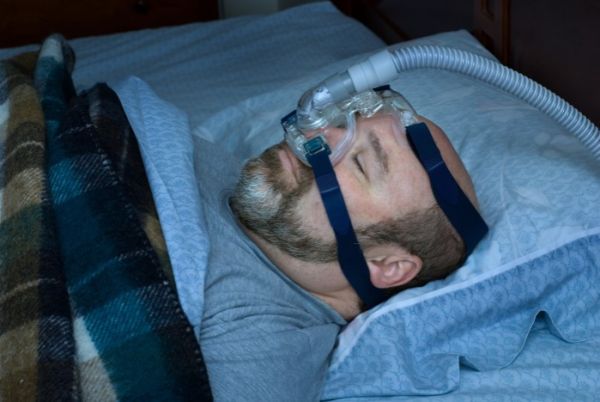Dental Sleep Apnea Treatment FAQs

Sleep apnea is a very common condition that affects millions of Americans. To know how to effectively treat the condition long-term, it is helpful to fully understand what it is, what the symptoms are and the treatment options that are available.
Common questions about dental sleep apnea
Although sleep apnea is incredibly common, many people, including many of those who struggle with the condition, do not know exactly what it is. The following are answers to four of the more frequently asked questions about dental sleep apnea and the treatment options that are available.
What is dental sleep apnea?
In simplest terms, sleep apnea is when a person stops breathing while they are asleep. The most common form of sleep apnea is obstructive sleep apnea(OSA) which occurs when the airway is blocked off during sleep. The cause of the blockage is soft tissues that collapse when the muscles relax. For those who struggle with OSA, this can occur several times throughout each night.
What are the signs of sleep apnea?
Every sleep apnea patient may have a unique set of symptoms. However, there are certain symptoms that are prevalent in most cases, including the following:
- Consistent snoring
- Choking sounds
- Daytime fatigue
- Restless sleep
- Lack of motivation
Many, especially those who sleep alone, do not know they have sleep apnea and subsequently do not seek treatment. It is important to check for these signs and visit the dentist if one or more is present as it may affect one’s mental state and productivity throughout the day.
How is sleep apnea treated?
Ther are several different treatment options available to sleep apnea patients, including continuous positive airway pressure(CPAP) machines, oral appliances and surgery. CPAP machines are effective and somewhat popular, but many do not enjoy them as they are not typically the most comfortable solution. Surgery is rare and generally only necessary for severe cases. Dental oral appliances are quickly becoming a more preferred solution as they are comfortable and often effective.
Are oral appliances safe to use?
The FDA has approved more than 100 oral appliances, which have been tested for safety and effectiveness. With that said, it is important to visit the dentist for a prescribed oral appliance to ensure optimal safety each night. Many general dentists offer oral appliance treatment options to their sleep apnea patients, which are custom-fit to meet the patient’s exact needs. It is also non-invasive, comfortable and often highly effective. They look very similar to sports mouthguards or mouthguards for teeth grinding, although they are specifically crafted to keep the airways open and reduce the symptoms of sleep apnea.
Talk to a dental professional about sleep apnea
Find out more about dental sleep apnea treatment by discussing symptoms you experience and treatment options with a dental professional during an initial consultation visit. Here at our office, we help our sleep apnea patients find an effective solution they enjoy, allowing them to sleep better each night and be more productive and in good spirits throughout each day.
Request an appointment here: https://alexoldtowndental.com or call Alexandria Old Town Dental at (703) 763-1078 for an appointment in our Alexandria office.
Check out what others are saying about our services on Yelp: Read our Yelp reviews.
Related Posts
Oral health is integral to your overall health, and good dental hygiene is essential to maintain healthy teeth and gums. A family dentist not only helps to maintain healthy teeth and gums, but they also play an important role in preventing future dental problems. This blog will explore a family dentist's role in preventive dental…
Choosing a family dentist can be daunting, especially if you are new to a neighborhood or city. However, a family dentist is an important member of your healthcare team and can help you maintain good oral health for your entire family. The following blog includes tips to help you choose a family dentist that is…
Unlike other body organs, your teeth cannot regenerate when damaged. Therefore, you will need to repair the teeth with synthetic materials to have a full-functioning smile. Here are some tips from a family dentist to help maintain proper oral care to preserve the only set of natural teeth you will ever have.Brushing removes plaque, a…
Taking care of your family's dental health is important to help maintain your and your children's overall health and well-being. Regular visits to a family dentist can help identify and treat dental problems before they become more serious and require more intensive care. However, finding the right family dentist can be daunting, especially if you…


